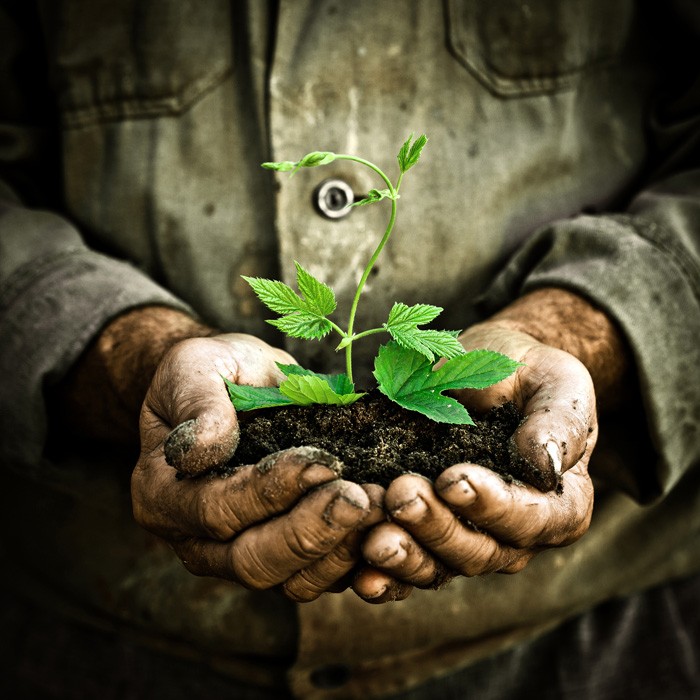Cannabis reform has experienced a global shift over the past few years, and many countries are on paths to tolerant legalization. If stigmas continue to dissipate and the masses continue to explore and learn, the cannabis industry undoubtedly will become not only one of the most lucrative but also one of the eco-friendliest. A positive evolution of the global cannabis consciousness will change the world and economies for the better.
Within just the past two years, a majority of U.S. states have reformed existing marijuana laws or created positive new legislation. Whether cannabis and cannabis products are fully legal (as the entire West Coast will be by 2018) or local markets embrace recreational, medical, or decriminalized marijuana, almost all of the United States now recognizes the benefits of this exceptional plant. In fact, only three states—Idaho, South Dakota, and Kansas—still prohibit use of cannabis in any form for any reason. Even Bible Belt states like Tennessee and Texas permit patients to use non-psychoactive CBD to treat seizures. It’s a small step, but it’s a step toward progress.
For many non-Europeans, the word “marijuana” evokes Amsterdam’s legendarily permissive culture, but the Netherlands is not alone in tolerance for cannabis. Across Europe, laws have been reformed to allow personal consumption, though it’s important to note the laws are generally shifty and shadowy and fall on many different points on the legality spectrum.
In 2010, the Czech Republic passed a law decriminalizing personal possession of narcotics. Malta, Croatia, Latvia, and Denmark have shifted their marijuana laws to allow personal possession.
In Spain, more than 500 private cannabis clubs allow members to cultivate and consume in small quantities. Cannabis oils and edibles are available in these social clubs, but because products are homegrown and homemade in small batches, the quality does not yet compare to products manufactured in California or Colorado. Spain does not require testing for pollutants like mold and chemicals.
In fact, fewer than a handful of Spanish growers produce pharmaceutical-quality cannabis for medicinal use. As the market changes, standards of testing for edibles and concentrates surely will change along with them.
“Companies like Kiva who are committed to their end user will adapt to any set of regulations they are faced with,” said Charlie Cangialosi from Kiva Confections, a California cannabis chocolate company. In Cangialosi’s view, as the demand for quality control rises, companies like Kiva will stand out as positive examples and others will be forced to change their outdated practices.
Even in Spain, where there is tolerance for cannabis users, product quality—and subsequently, the well-being of Spaniards—has not generated much official action. The few people who are producing cannabis products of a pharmaceutical quality have started a movement toward more awareness.

While Italy has substantially decriminalized cannabis use, social taboos remain. Doctors may prescribe the herb for severe conditions like multiple sclerosis and cancer, although prescribing physicians may find themselves stigmatized. As the demand for medical cannabis increases, it’s likely stigmas will decrease.
Italy has an interesting approach to cultivation: The Army is the official grower, utilizing a locked-down facility in Tuscany. Who better to protect the national stash than the army?
Italy also is experimenting with using industrial hemp to clean contaminated soil, a process called phytoremediation. Cannabis pulls toxins from the soil, leaving formerly poisoned fields ready for agriculture once again. Despite absorbing contaminants including heavy metals like nickel and cadmium, up to 75 percent of the plant remains usable for fiber and biofuel.
Culturally, Italians prefer natural options over synthetic. Because of this preference, the progressive use of cannabis is likely to continue evolving in Italy.
If the 2016 bill for recreational use is approved, Italy could be a main producer of world-class cannabis.
In the view of one industry insider, Italian legislation likely will continue facing delays due to corruption and profit from the black market within the Italian system.
In Morocco, cultivation, sales, and consumption are illegal. However, cannabis is responsible for 32 percent of the national revenue. Morocco produces nearly 75 percent of the hash smoked around Europe, especially in Spain.
An associate of Club ALMA, a social club in Barcelona (winner of the Master’s Cup for old-school hash) noted, “Numbers of countries [like Portugal] have been changing their laws to bring down rates of overdose, drug dependency, homelessness, and debt. This is good, because they have set the precedent for these kinds of changes. But until cannabis is legal globally, there will always remain a black market.” Nations worldwide would need to work more closely together on cannabis reform to eradicate the black market.
Laws are no longer so black and white. Global perceptions of marijuana are changing, allowing legalization supporters to envision a near future where multiple cultures may benefit from the cultivation and use of cannabis. Improved health and peace of mind, as well as school financing and safer neighborhoods, will benefit from cleaner air, cleaner earth, and more income.
Globally, the regulatory environment is changing; the business is changing. It’s only a matter of time before cannabis companies will effect positive change in the world, transforming millions of lives and economies for the better.











